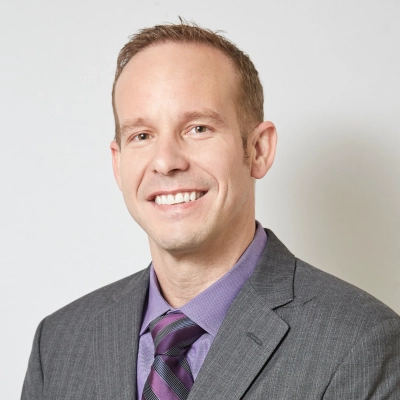7 Steps to Explore Otolaryngology as a Medical Specialty
Otolaryngology, a fascinating branch of medicine, offers a unique blend of surgical and medical approaches to patient care. This comprehensive guide, enriched with insights from experienced practitioners, outlines essential steps for those considering this dynamic specialty. From understanding long-term career realities to developing crucial manual dexterity skills, aspiring otolaryngologists will find valuable advice to navigate their path in this rewarding field.
- Understand Long-Term Realities of Otolaryngology
- Experience Clinic and OR Settings Firsthand
- Explore Diverse Subspecialties Within ENT
- Seek Mentorship from Experienced Practitioners
- Attend Conferences to Stay Current
- Engage in ENT Research Projects
- Develop Essential Manual Dexterity Skills
Understand Long-Term Realities of Otolaryngology
As an otolaryngologist, I can tell you that the specialty is becoming increasingly subspecialized. If you're seriously considering this path, be prepared to do a fellowship. You should understand what you're getting yourself into—not just the clinical aspects, but the long-term realities of the field.
Right now, salaries appear high, but this is partly a distortion. We're in a post-COVID market correction. Approximately 14,000 ENTs are practicing in the U.S., with about 750 retiring each year—a sharp increase from 350 in 2014. Meanwhile, training programs are producing only around 333 new ENTs annually. Even if that number increases to 380, as planned, we'll still see a net decline in workforce. While that may sound like good news for job security and salary, I believe it could actually signal instability. Once the market fully resets, salaries may fall dramatically.
If you're going into ENT purely for financial reasons, you may find yourself disappointed. This career can—and often must—be a labor of love. It's a phenomenal specialty with a lot to offer, but it may not be what you imagined when you started residency.
The obvious advice is to do as many away rotations in ENT as possible to gain exposure. But also, talk to practicing physicians—not just the ones posting highlight reels online. The truth is, nearly every doctor I know is actively planning or at least dreaming about doing less clinical work in the future. Very few expect to retire doing the same job they started with.
Technology is evolving rapidly across all of medicine, and that's exciting. But the broader medical landscape—bureaucracy, reimbursement pressures, administrative burdens—is getting tougher. Ask yourself: What do I want my life to look like 15 years from now?
It's easy to fall in love with a subspecialty during training, only to wake up one day and realize that being in the trenches indefinitely is not what you signed up for. Many physicians eventually shift into administrative roles to escape that grind.
So my advice is to proceed cautiously—and think like an entrepreneur. Have a long-term vision. There is more to life than your career, and if you weigh all the factors upfront, you'll make better decisions. I'm glad I chose ENT—it truly is the best of the worst—but if I had to do it all over again, I'm not sure I would, not because of the specialty itself, but because of the bureaucracy that now defines so much of medicine.

Experience Clinic and OR Settings Firsthand
One of the most valuable pieces of advice I can give to medical students interested in otolaryngology is this: spend time shadowing in both clinic and operating room settings as early as possible. Otolaryngology is a uniquely broad field that combines intricate surgical procedures with continuity of care in an outpatient setting. The best way to understand if this blend suits you is to experience it firsthand.
Many students are drawn to ENT for its surgical variety or the technology involved in procedures, like endoscopy or balloon sinuplasty. But what often solidifies the decision is seeing how much of the specialty also relies on long-term patient relationships, treating everything from chronic sinus conditions to sleep and airway disorders. Shadowing allows you to see the full scope: the complex head and neck surgeries, but also the routine follow-ups that build trust and improve quality of life over time.
If possible, find an ENT who's willing to let you observe across multiple days and settings. It will give you a more realistic understanding of the pace, challenges, and rewards of the field. It's not about memorizing procedures; it's about seeing how otolaryngologists think, communicate, and care.

Explore Diverse Subspecialties Within ENT
Otolaryngology, also known as ENT (ear, nose, and throat), offers a wide range of subspecialties that can lead to diverse career opportunities. From head and neck surgery to pediatric ENT, each area presents unique challenges and rewards. Exploring these subspecialties can help aspiring otolaryngologists find their passion within the field. By understanding the various paths available, medical students can make informed decisions about their future specialization.
Take the time to research each subspecialty in depth and consider which areas align best with your interests and strengths. Reach out to professionals in different subspecialties to gain firsthand insights into their daily work and experiences. Start your exploration today by creating a list of otolaryngology subspecialties that intrigue you the most.
Seek Mentorship from Experienced Practitioners
Mentorship plays a crucial role in the development of aspiring otolaryngologists. Experienced ENT practitioners can provide valuable guidance, share real-world insights, and offer advice on navigating the complexities of the specialty. By seeking mentorship, medical students can gain a deeper understanding of the challenges and rewards associated with otolaryngology.
A mentor can also help identify opportunities for growth and provide support throughout the learning process. Building a strong relationship with a mentor can open doors to new experiences and connections within the field. Take the initiative to find a mentor by reaching out to ENT departments at local hospitals or medical schools.
Attend Conferences to Stay Current
Attending otolaryngology conferences is an excellent way to immerse oneself in the latest developments of the field. These events bring together experts from various subspecialties, offering a unique opportunity to learn about cutting-edge research and innovative techniques. Conferences also provide a platform for networking with professionals and fellow students who share similar interests.
By participating in workshops and presentations, attendees can gain hands-on experience and expand their knowledge base. The exposure to different perspectives and approaches can help shape one's understanding of otolaryngology as a whole. Make a commitment to attend at least one otolaryngology conference in the coming year to broaden your horizons.
Engage in ENT Research Projects
Engaging in ENT-related research projects or contributing to publications can provide invaluable experience for those exploring otolaryngology. Research allows for a deeper understanding of specific topics within the field and helps develop critical thinking skills. By participating in studies or writing papers, medical students can gain recognition in the otolaryngology community and build their professional reputation.
This experience can also enhance one's resume and increase chances of securing competitive residency positions. Collaborating with established researchers can lead to mentorship opportunities and expand professional networks. Start by identifying ongoing research projects in your institution's ENT department and express your interest in contributing.
Develop Essential Manual Dexterity Skills
Developing manual dexterity skills is essential for success in otolaryngology, particularly for surgical procedures. Precision and steady hands are crucial when working with delicate structures of the ear, nose, and throat. Aspiring otolaryngologists can improve these skills through various activities and exercises designed to enhance fine motor control.
Regular practice can lead to increased confidence and competence in performing intricate procedures. Improved manual dexterity also contributes to better patient outcomes and reduced operative times. Begin honing your skills today by engaging in activities that challenge your hand-eye coordination and fine motor skills.

